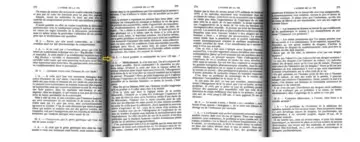The Internet Reformation [h/t to Anthony Wile of The Daily Bell ] is the notion that the widespread use of the internet was the equivalent of the widespread use of the printed word, following on Gutenberg’s invention of the printing press.
It was an unveiling of things that had been hidden until then, from the teachings of the Bible to the workings of nature. It was an apocalypse, if you will, of the same magnitude as what is taking place today, with the adoption of the Internet.
Something similar was supposed to have happened with the Internet. The monopoly of the large media houses was supposed to have been shattered and replaced by the voices of citizens. And it was. But this Reformation was barely underway in 2007, when the Internet Counter-Reformation mounted its assault, using dozens of large anonymous or pseudonymous “citizen media” outlets, which, on careful examination, proved to have been astro-turfed.
That is, they led straight back to the mainstream media [MSM] and to the mainstream alternative media, to use an oxymoron.
I have explained who these mainstream alternatives are elsewhere.
They include outlets like Democracy Now, Alternet, Breitbart, Daily Caller and dozens of others.
These are just a few I’ve picked that are widely read on all sides of the political spectrum. There are scores of other sites that are just as influential that I have not named. They too belong here. As do hundreds of smaller ones, for whom the words below are equally relevant.
The mainstream alternatives constitute what the now-disappeared Zahir Ebrahim
[who seems to have resurfaced through a mirror blog of some kind]
has dubbed the dissentstream,
a body of dissent, which, on closer examination, reinforces in subtle ways the assumptions and conclusions of the mainstream media, both establishment and alternative.
This body of dissent mixed with disinformation is allowed to exist because of the variety of uses it has for the state:
It acts a release-valve for citizen frustration and hostility
It provides maximum cognitive diversity in the information environment
Is provides maximum cover for information operations and black operations conducted by the intelligence services
It allows war- gaming of various planned or mulled future scenarios
It traces and surveils social networks of potential and real dissidents
It disciplines bloggers/citizens to self-censor, through high-profile highly visible pundit take-downs and cancellations
It tests the public mood and readiness for various covert and public projects
It employs predictive programming, aka “revelation of the method,” as described by Michael Hoffman
[The notion of predictive programming is regarded as a conspiracy theory by the media-academic-think-tank complex, which is now sending anyone who looks for it on a Google search to the term, predictive coding. Previously, you could find predictive programming on the first page of a Google search for the term.]
It generates and develops memes that mold public consciousness and markets
It taps potential markets and creates new one
It takes without credit, ideas, research, innovations, and leads and uses them to reward and enrich preferred individuals and companies and to suppress and impoverish other voices
That is not an exhaustive list, by any means.
Bottom line:
The media is not about informing the public. It is about misleading it and milking it.
The media is not about revealing the truth. It is about paralyzing the will and diverting/exhausting attention and resources.
